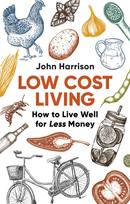The news is awash daily about the cost of living crisis and I’m sure everyone is starting to notice the increases in food, fuel, and utility costs. Inflation is currently over 10% and rising. I calculated that just our monthly food shop was up about £75 on last year in July (far more than 10%!), plus an extra £50 for fuel for the car, an increase of £50 monthly on our electricity bill (we were on a fixed until April when we moved house) and the thought of needing to top up another 500l of oil means a new budget is in order.
I know we’re lucky, we can adapt to the new expenses by cutting back elsewhere. Not everyone can do this.
 New Household Budget
New Household Budget
Whenever costs increase I sit down with our household budget and work out just what’s left in the pot after our primary outgoings. If you need a budget template then head over to Money Saving Expert’s Budget Planner as this includes guidance on how to fill it out and is a great place to start. I personally use a spreadsheet system I’ve had for years and I also use this for forecasting (so if our income went down what the minimum we’d need to earn to meet all average outgoings are for example).
Once I’d plugged in increased fuel costs, utilities, and grocery/household costs it showed our expenses are up by £350 a month in total on last year. This also includes us having moved from mains gas to oil at the new property, which is a jump in itself cost wise and one I knew we’d need to budget in at least. If I took out the oil-to-gas increase plus increased council tax (higher band property) we’re still up £200 on last year for household bills. That’s a huge increase!
Come the Autumn we’re looking at further electricity price rises of up to 80% forecast, the cost of oil and car fuel feels as though it increases daily, and supermarket basics are jumping each time you checkout. It’s scary. Especially scary if you don’t have the room in your budget to accommodate these changes. If you have no savings allowance that can be cut, if your grocery bill is already as cheap as you can get it to feed your family, if you already have the thermostat set as low as you can reasonably go, or if you already were reliant on food banks to help bridge the gap each month. It is crippling people.
Government Support
There is of course the government support package that has been brought in to help those on the lowest incomes and who will struggle the most with the increases in living costs. Though whether this goes far enough, or whether it will reach all of those that need it is up for debate. There is also of course the concern that this stimulus and any further packages will lead to further increases in the rate of inflation, raising the question of how to balance this with the needs of those that are most vulnerable. Whether or not I support the current government, I certainly do not envy their job at present.
We’ll receive the £400, as will all in the UK with an electricity/gas account, to help ease the rising costs in the Autumn. On top of that we shall also get an additional £150 as Gabriel receives DLA. This will barely touch the edges of our increased costs though.
 Saving Money
Saving Money
The first thing I’m sorting out is the GP to complete the “Water Sure” forms for Welsh Water. The house we’ve moved to has a water meter, which when you have someone in the household with a disability that leads to increased water use can quickly become crippling price wise. Welsh Water, and I’m sure other water authorities, have a scheme whereby they cap the usage in these circumstances. It requires a form be completed by the GP or Consultant team. I had planned to wait until our next Consultant appointment to sort this, but we’ve been moved to mid-2023 now for that so GP it is.
Bulk Purchases
I’ve been stocking up on bulk store cupboard items too. Rice, dried beans, gluten free pasta (Gabriel is coeliac), coffee, sugar etc all store well and often are cheaper to purchase in larger quantities. We have a utility room in the new house and although it needs properly fitting out – something for a few years time – for now we’ve found using large plastic storage tubs works well for this bulk storage. We have about 6 months of supplies and I top-up when I find good offers; rotating the stock regularly. Again, I know we’re lucky to have room in the budget to bulk-buy like this, if you also have the finances and storage space I’d highly recommend it. Always check the price per kilo not packet price to make sure any offers are as good as they look.
 Storing Home Grown Produce
Storing Home Grown Produce
Storing our home produce is one of the biggest ways we save. Over on the smallholding John and Gary have been hard at work making sure we have bumper crops this year. I’m currently spending my spare time making jams and bottling tomatoes and other vegetables. Even if you don’t grow your own foraging may be an option. The blackberries are already ripening across the UK so it is a great time to get out with an old tub and grab some free fruit. Falling Fruit is a great website to check out for local fruit bushes and trees on common land that you can forage from.
Also checking out if local farmers have good deals if you eat meat (and have large freezers) is a good way to lower prices. Our chest freezers are a real boon for us both for storing home grown vegetables and also for storing yellow label supermarket purchases and any bulk deals we get on meat.
Supermarket Reductions
Supermarket “yellow labels” can at times be fantastic. In recent years there have seemed to be less great reductions near to us, we have had the odd haul but no where near pre-pandemic reductions, however I know in other parts of the UK people still manage to really cut their costs this way. You’ll find supermarkets reduce at a similar time each day and if you can shop at these times it is worth checking out the reduction chiller and aisles and stocking up on things you need or meal planning around the reductions.
New Newsletter
For the past 10 years I’ve ran the monthly Poultry Pages Newsletter which I’m planning in September to switch to a Low Cost Living Newsletter instead. For us keeping poultry is just one of the ways we keep our costs down (although the initial outlay is quite expensive to warn any one considering it!) and although in this newsletter I will still be looking at poultry keeping I’ll also be branching out into our other money-saving methods we use as a family. I’ve been asked a few times in emails to cover this so I think now is the time to do so!


Leave a Reply